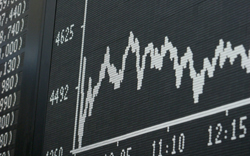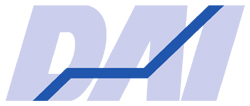Campus
Insiders are buying
 Since executives and supervisory-board members have good insight into their companies’ order books and balance-sheets, so-called Directors’ Dealings can act as a signal to the market that a company might soon go back up. The Frankfurt-based analyst firm Research 2iQ has been observing purchases and sales of shares by business leaders for five years. In August, they noticed a run on own shares in German, but also European and US, corporations. When prices plummeted in early August, insiders ordered shares worth 164.1 million euros Europe-wide. As against 804 purchase orders, there were 70 sales, with a value of only 6.6 million euros. That was the highest ratio between purchase and sale of shares since the start of data collection by 2iQ. In Germany alone, prices fell by more than 20 percent within eleven days, and there were purchase orders worth €24 million, as against sales of only €1.4 million. By the end of the month there had been 2333 purchases and only 260 sales. In particular, Metro, Merck, BASF and Heidelberg Cement shares were bought. At trading company Metro, group CEO Eckhard Cordes purchased 5000 Metro shares, with a value of €172,250. Board member Frans Muller ordered €196,500 worth of shares, and CFO Olaf Koch even €345,000 worth. After being forced to sell heavily in the crisis, business family Merckle upped its commitment at the Heidelberg cement producer in late July by 840,000 shares, valued at 30 million. The recent buying trend for CEOs is even stronger than after the price crash of 2008 and 2009, according to 2iQ. On the sales list was Linde’s CEO Wolfgang Reitzle, who sold 65,000 shares from an incentive programme, making €8.2 million. A negative price slide caused Lanxess CEO Axel Heitmann to get rid of €10 million worth of papers.
Since executives and supervisory-board members have good insight into their companies’ order books and balance-sheets, so-called Directors’ Dealings can act as a signal to the market that a company might soon go back up. The Frankfurt-based analyst firm Research 2iQ has been observing purchases and sales of shares by business leaders for five years. In August, they noticed a run on own shares in German, but also European and US, corporations. When prices plummeted in early August, insiders ordered shares worth 164.1 million euros Europe-wide. As against 804 purchase orders, there were 70 sales, with a value of only 6.6 million euros. That was the highest ratio between purchase and sale of shares since the start of data collection by 2iQ. In Germany alone, prices fell by more than 20 percent within eleven days, and there were purchase orders worth €24 million, as against sales of only €1.4 million. By the end of the month there had been 2333 purchases and only 260 sales. In particular, Metro, Merck, BASF and Heidelberg Cement shares were bought. At trading company Metro, group CEO Eckhard Cordes purchased 5000 Metro shares, with a value of €172,250. Board member Frans Muller ordered €196,500 worth of shares, and CFO Olaf Koch even €345,000 worth. After being forced to sell heavily in the crisis, business family Merckle upped its commitment at the Heidelberg cement producer in late July by 840,000 shares, valued at 30 million. The recent buying trend for CEOs is even stronger than after the price crash of 2008 and 2009, according to 2iQ. On the sales list was Linde’s CEO Wolfgang Reitzle, who sold 65,000 shares from an incentive programme, making €8.2 million. A negative price slide caused Lanxess CEO Axel Heitmann to get rid of €10 million worth of papers.
Future of Annual Reports
The Institute for Media and Communication Management at the University of St. Gallen, in cooperation with external partners including PricewaterhouseCoopers, has explored the trend in corporate reporting. Three key trends can accordingly be identified in company communications: Storytelling, Reduce to the Max and Mash Up. Thus, the Annual Report is increasingly becoming a serial story, recording the events and developments of the past year. The capital-market professionals are also overwhelmed by the flood of coverage. Moreover, the key performance indicators should reflect the business model and illustrate how the company makes its money. Transparency and comparability in reporting may be achieved through the use of the internationally established reporting language eXtensible Business Reporting (XBRL). St. Gallen sees the future in simplicity of content, reduction to essentials and fast publication. Increasingly, different target groups would call up the precise data they need for their own purposes. “The Annual Report will be a self-service store, a kind of portal, which at best gives brief instructions for use,” the study summarizes the mash-up trend. In future, therefore, companies should ask more which target group they want to reach and what the function of the annual report is.
Insurance accounting too uneven
 16 European insurers examined by KPMG auditors were doing significantly better in late 2010 than a year earlier, with surpluses up an average of ten percent. However, the reported figures were barely comparable. Operating results were defined each on their own terms, says the KPMG study, criticizing the accounting practices of financial conglomerates. The biggest problems caused thereby were elimination of the fluctuations in market values of financial assets, and tax effects, depreciation and amortization. The auditors therefore urge the London-based International Accounting Standards Board (IASB) to reduce the volatility in the new standards announced for 2012.
16 European insurers examined by KPMG auditors were doing significantly better in late 2010 than a year earlier, with surpluses up an average of ten percent. However, the reported figures were barely comparable. Operating results were defined each on their own terms, says the KPMG study, criticizing the accounting practices of financial conglomerates. The biggest problems caused thereby were elimination of the fluctuations in market values of financial assets, and tax effects, depreciation and amortization. The auditors therefore urge the London-based International Accounting Standards Board (IASB) to reduce the volatility in the new standards announced for 2012.
Share ownership rises
 In the first half of 2011 some 8.3 million people in Germany directly or indirectly held shares, according to the German Share Institute (DAI). Thus, the number of shareholders rose slightly, to 12.8 percent of the total population. While 3.7 million, or 5.7 percent of the population, invested directly in equities and thus the number rose by 276,000 compared to the second half of 2010, the number of investors in equity or balanced funds over the same period grew by 117,000 to 6.1 million, or 9.4 percent of the population.
In the first half of 2011 some 8.3 million people in Germany directly or indirectly held shares, according to the German Share Institute (DAI). Thus, the number of shareholders rose slightly, to 12.8 percent of the total population. While 3.7 million, or 5.7 percent of the population, invested directly in equities and thus the number rose by 276,000 compared to the second half of 2010, the number of investors in equity or balanced funds over the same period grew by 117,000 to 6.1 million, or 9.4 percent of the population.
BMW and Deutsche Bank top in business communication
The consulting firm Dr. Doeblin has again this year awarded prizes for the best press work in various categories. With quick and competent answers to questions and promptness of compliance with interview requests, the two DAX heavyweights BMW and Deutsche Bank scored the best image this year with 256 business journalists interviewed for good and professionally done press work by large companies. Behind them came Allianz and Volkswagen.
Compensation sharply up
The transparency of executive compensation in Germany has increased significantly since 2002, the first study by German shareholder association DSW. In the Annual General Meeting season just over, 27 of the 30 DAX companies put their executive remuneration system to a vote at the shareholder meeting. The outliers are MAN, Merck, and Infineon. The average salary increased by 22 percent and is now 2.9 million euros, close to the 2007 level. At €4.5 million, CEOs especially were paid significantly better than their board colleagues. MDAX executive compensation increased by 18 percent in 2011 to an average of €1.55 million. MDAX CEOs earned on average €2.16 million. Internationally, German managers ranked in the middle between France and Switzerland. The United States is still at the top.
IASB proposals unpopular
The International Accounting Standards Board (IASB) has produced proposals for profound change in the future presentation of financial statements. The goal is to obtain more detailed information and a unified presentation of the balance-sheet, total earnings and cash-flow statement. However, many companies see no real sense in this, as consulting firm PricewaterhouseCoopers (PwC) show in their study “The Financial Statement Presentation project: Much effort, little benefit?”. Between February and May PwC surveyed 36 companies, including eight companies from the DAX and ten from the MDAX. In general, the conversion project is encouraged by companies. However, respondents perceive the costs and benefits of the proposed changes to be disproportionate. The criticism here is mainly of the direct visualization of the operating cash flow.















